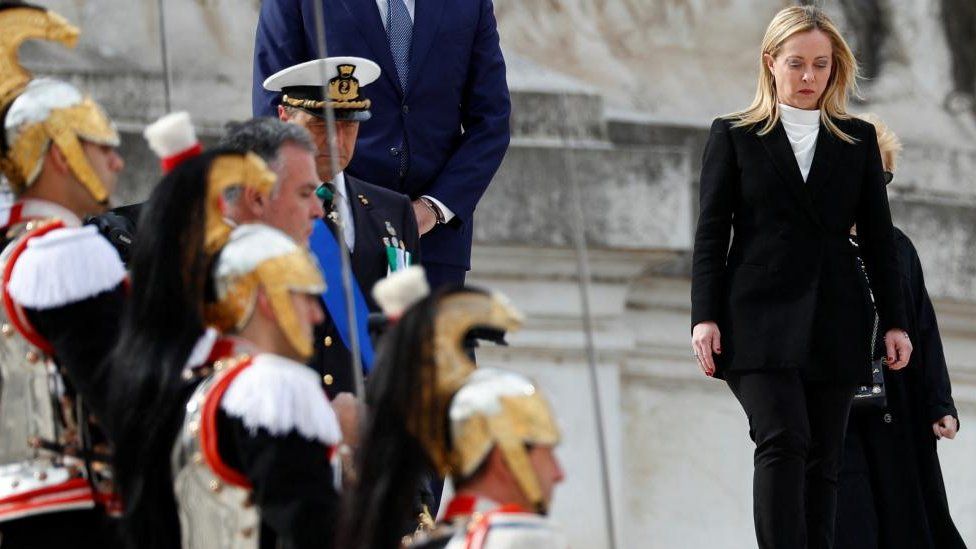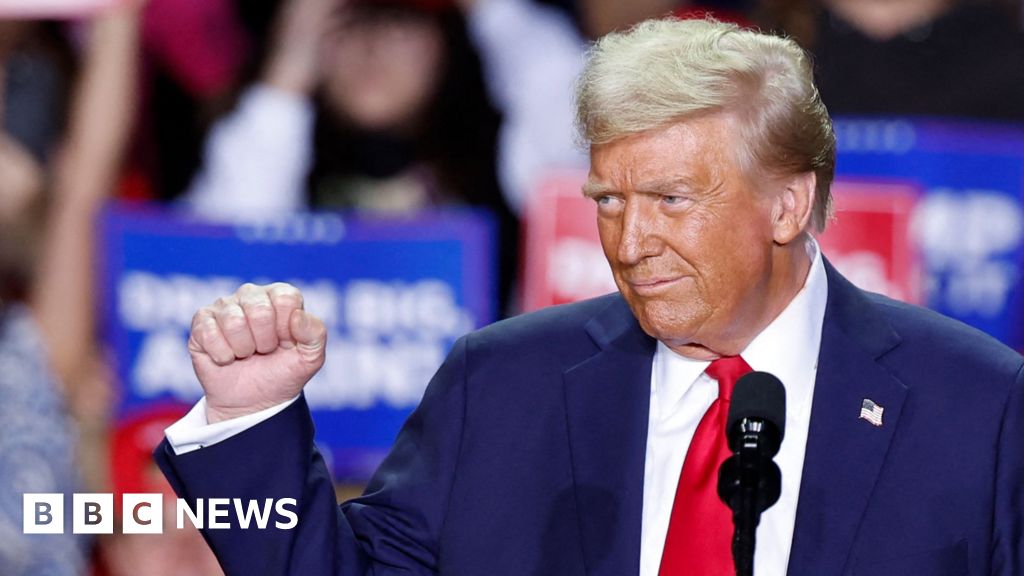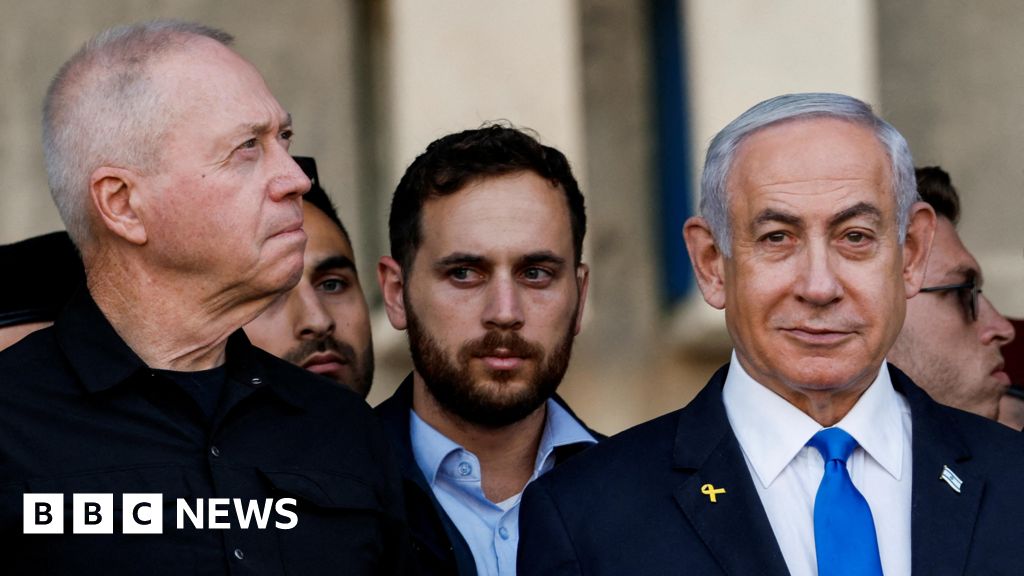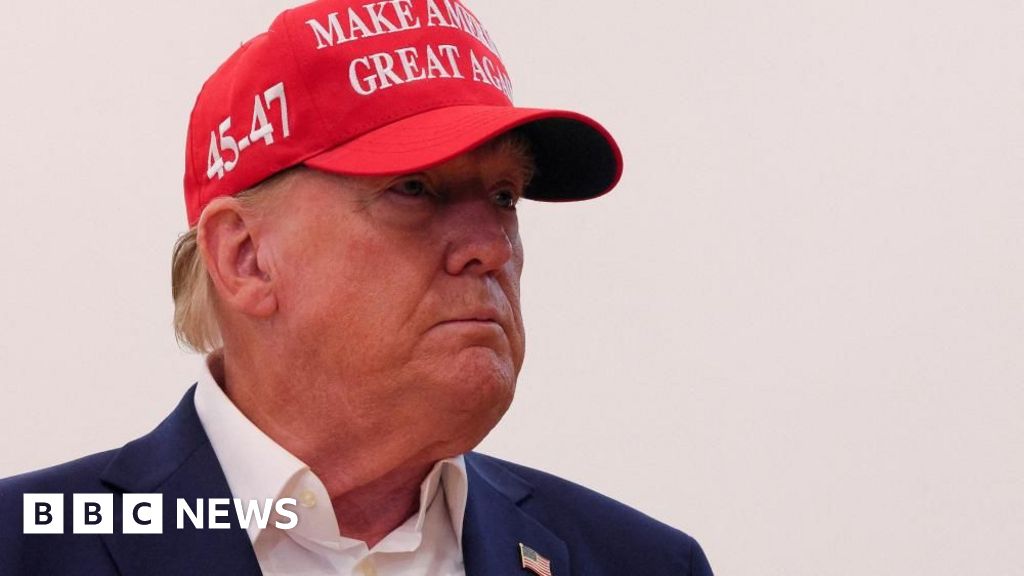ARTICLE AD BOX
 Image source, Reuters
Image source, Reuters
Prime Minister Giorgia Meloni leads Italy's most right-wing government since World War Two
By Sofia Bettiza
BBC News, Rome
Prime Minister Giorgia Meloni has taken part in a solemn wreath-laying ceremony to mark Italy's National Liberation Day, which commemorates the end of fascism and Nazi occupation in 1945.
Liberation Day normally brings Italians together and it is marked with parades.
But for the first time since World War Two, Italy is led by a party whose origins lie in the country's post-fascist past.
And this year's commemorations have been riddled with controversy.
Among those taking part in Tuesday's Rome ceremony was a collector of fascist memorabilia, Senate Speaker Ignazio La Russa, who holds Italy's second-highest office of state.
A few days ago, he was quoted as saying: "There is no reference to anti-fascism in the Italian constitution".
His comments sparked a barrage of criticism from the centre-left, and calls for him to resign. Democratic Party leader Elly Schlein reacted by insisting that "anti-fascism is our constitution".
The furore was not the first time that Mr La Russa's links to Italy's fascist past had caused controversy.
He was filmed in 2018 escorting reporters around his house, showing busts and mini-statues of Benito Mussolini, along with fascist memorabilia.
He recently said he would never get rid of his Mussolini bust, because it was a gift from his father.
Image source, GIUSEPPE LAMI/EPA-EFE/REX/Shutterstock
Image caption,Senate Speaker Ignazio La Russa (left) caused controversy with his remarks ahead of Tuesday's ceremony
The Senate speaker is a founding member of the far-right Brothers of Italy party - and a key ally of Ms Meloni.
She has refused to condemn him, but sought to distance herself from fascism in a letter to Italian newspaper Corriere della Sera.
"For many years, right-wing political parties in Parliament have declared their incompatibility with any nostalgia for fascism," she said.
Calling for the day to be a "celebration of freedom", Meloni wrote that "the fundamental result of 25 April was, and undoubtedly remains, the affirmation of democratic values, which fascism had trampled on and which we find engraved in the republican constitution."
She blamed politicians for using fascism as a "tool for delegitimising political opponents: a sort of weapon of mass exclusion."
But Ms Meloni does lead the most right-wing government since World War Two. Brothers of Italy is a direct political descendant of the Italian Social Movement, which was formed by members of Mussolini's Fascist Party after the war.
When she was 19, Ms Meloni told French TV: "I think Mussolini was a good politician. Everything he did, he did for Italy. And we haven't had any politicians like that in the past 50 years."
She has tried hard to brand herself as a credible leader in Europe, since becoming prime minister six months ago. She has surprised Italians and European allies by displaying a moderate stance on a variety of issues - from the Italian budget to support for Nato and Ukraine.
But she is finding it tricky to keep the more outspoken members of her party in line.
Last week, Agriculture Minister Francesco Lollobrigida - one of her closest allies, and her brother-in-law - was accused of white supremacy for saying Italians were at risk of "ethnic replacement."
Liberation Day also marks the victory of the resistance movement of partisans who opposed the fascist regime.
Italy's national partisans association recently criticised Ms Meloni for saying victims of a 1944 Nazi massacre on the outskirts of Rome were murdered "simply because they were Italian". They said those killed were not just Italians but also anti-fascists, resistance fighters, political opponents and Jews.
As the national anthem played on Tuesday, the prime minister and Senate speaker joined President Sergio Mattarella at the Altare della Patria, a national monument in Rome that honours the tens of thousands of lives lost during the war.
The prime minister has said she wants to help make the day a moment of "rediscovered national harmony", but she clearly has some way to go.

 1 year ago
19
1 year ago
19








 English (US)
English (US)